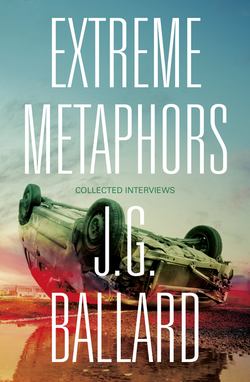Читать книгу Extreme Metaphors - Simon Sellars - Страница 15
1975: Philippe R. Hupp. Interview with J.G. Ballard
ОглавлениеOriginally published in French as ‘Entretien avec J.G. Ballard’, Magazine Littéraire 96, January 1975. Translated by Dan O’Hara
Ballard’s novels have always been translated into French with alacrity. Concrete Island was already in translation in time for review in the January 1975 edition of Magazine Littéraire, and Antoine Griset’s review was both penetrating and positive. Griset immediately connected the predicament of Ballard’s protagonist, stranded on an urban desert island between motorway intersections, with the extremes of social inequality within our society. ‘The image or the idea of a man dying of hunger only a step away from a haven of abundance is tragically familiar,’ Griset writes, noting how absurd it is that such distress has become a banal commonplace. While admiring the ‘immense talent’ of Ballard in transforming a vague, banal terrain into a hallucinatory hell – a feat also achieved in Crash – Griset observes that although Concrete Island may be a continuation of the earlier novel, this time the automobile is a mere symbolic pretext for an examination of the flip-side of our ordered, automated, aseptic lifestyle.
Griset sees the real focus of Concrete Island as being on the flotsam of urban Man Fridays (or should that be ‘Men Friday’?) living in the interstices of modern cities: the invisible masses we observe daily from behind the safety of the windscreen or the office window. In the novel Maitland, an affluent architect who crosses this invisible barrier, decides to remain on the concrete island, having triumphed over its obstinate vagrants. Yet Griset suggests that if the Maitland who first arrived on the island dies and is transformed into a new, stronger version of himself, he also remains afraid to recognise his own true nature. In a brilliant insight into Ballard’s metafictional method, Griset implies that this transformation of the protagonist is intended to provoke a similar transformation in the reader. Concrete Island is less concerned with awakening a new moral knowledge than with demonstrating the ways in which the mirror-world of own native brutality is just on the other side of the windscreen.
The following brief interview was printed alongside Griset’s review. Mostly concerned with the novel Ballard was then in the early stages of writing, High-Rise (which Hupp seems to believe would be called The Towers), it contains an intriguing reference to Ballard conducting research on the relation between criminal behaviour and the urban environment. It is an important nugget, because it seems to have started a line of enquiry that became a central topos of his writing, leading from Concrete Island through High-Rise to Running Wild and the loose tetralogy bookended by Cocaine Nights and Kingdom Come. [DOH]
HUPP: You’re in the process of writing a new novel called The Towers.
BALLARD: In fact I still haven’t found a title. It’s a book about what in England and the USA are called ‘high-rises’, these residential towers which can have forty or fifty floors or more. I saw a film about Poland last week, in which one complex of apartments had twenty floors and was a kilometre in length! I’ve been interested for several years now in new lifestyles which permit modern technology; skyscrapers have always attracted me. The life led there seems to me very abstract, and that’s an aspect of setting with which I’m concerned when I write – the technological landscape.
HUPP: Have you read The World Inside by Robert Silverberg? It’s a novel in which people live in groups of 800,000 in vertical cities. And Silverberg, instead of simply planting the people of today in a futuristic setting, is concerned with showing how their mentality and their social life would be affected.
BALLARD: I haven’t read that book, but what interests me is the present. I don’t want to extrapolate too far – there’s the risk of becoming detached from reality. Although I did write a story a few years ago, ‘Build-Up’, in which one city occupied the entire universe. It’s a quite fascinating subject.
HUPP: You’ve already examined housing schemes?
BALLARD: I did research before sitting down to write. For example, in cities, the degree of criminality is affected by liberty of movement; it’s higher in culs-de-sac. And high-rises are culs-de-sac: 2,000 people jammed together in the air …
HUPP: Entirely isolated.
BALLARD: Cut off from the rest of the world. In this kind of situation, all sorts can happen. Above all I’d like to examine the psychological modifications which occur without the knowledge of the inhabitants themselves, to see to what degree the mind of someone who drives a car or lives in a concrete high-rise has been altered. In the course of my investigations, I observed that there now exists a new race of people who are content in their little prisons, who tolerate a very high level of noise, but for whom the apartment is nothing more than a base allowing them to pass the night in comfort, as they’re absent during the day.
HUPP: Will this new novel be as symbolic as Crash and Concrete Island?
BALLARD: I think it will be in the same vein, although this time I’m no longer concentrating on one single character.
HUPP: And after that, will you further continue your series on the ‘technological landscape’?
BALLARD: No. I don’t have an idea for a novel, but I’d very much like to write several stories that I haven’t had the time to write these last few years. And it’s been a long time since I’ve written anything in the way of imaginative narratives, romances …
